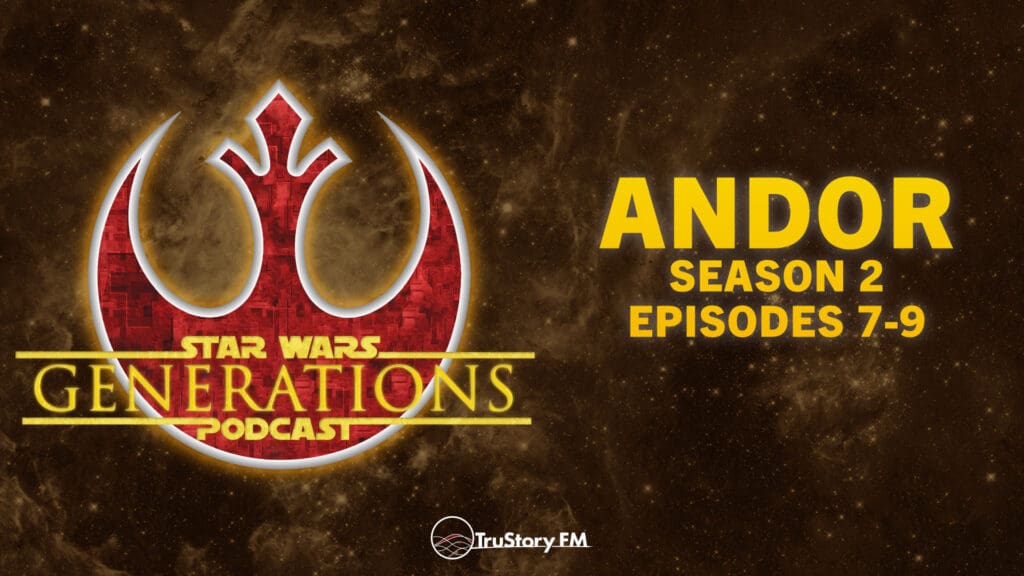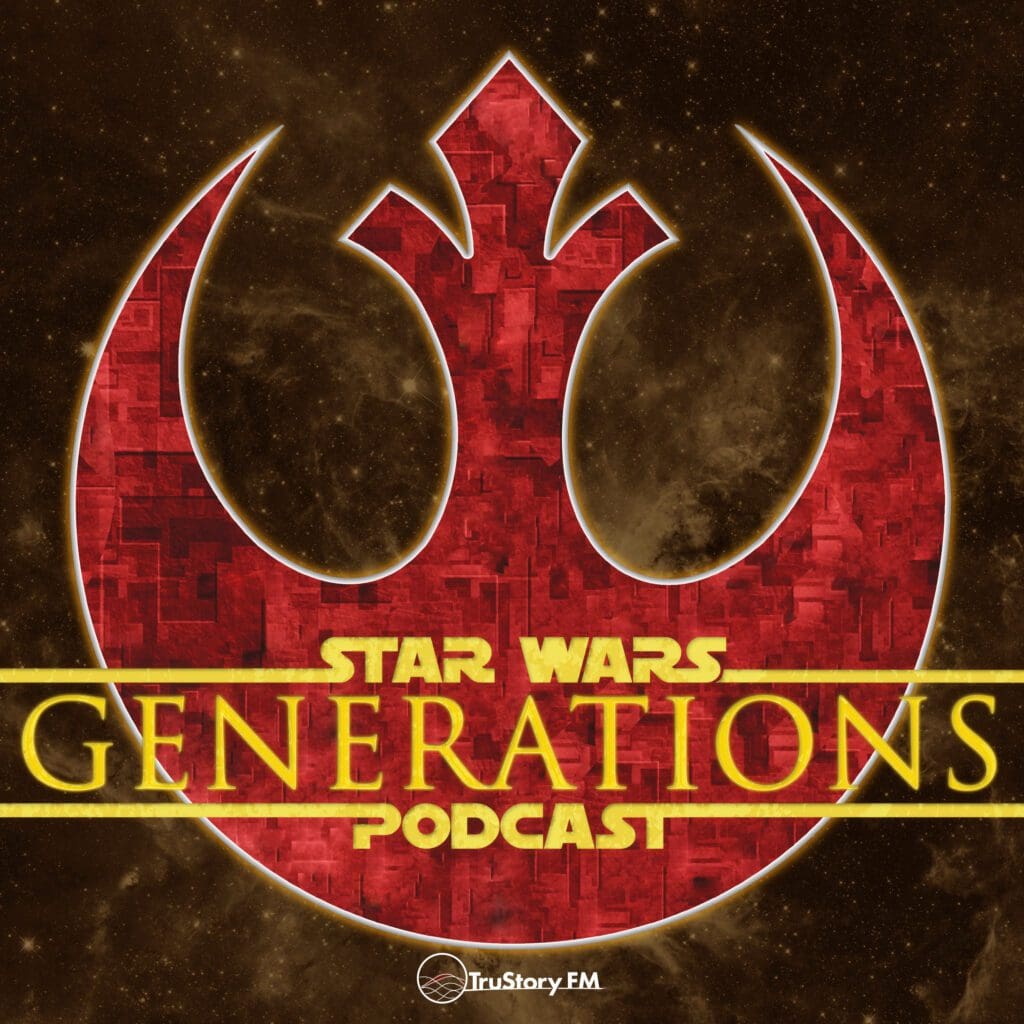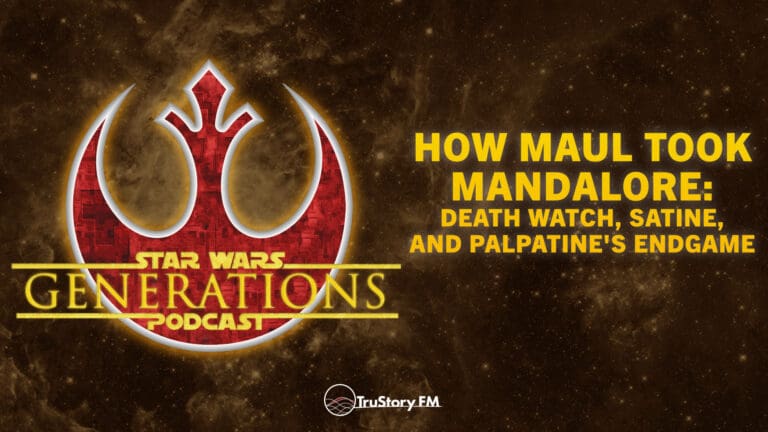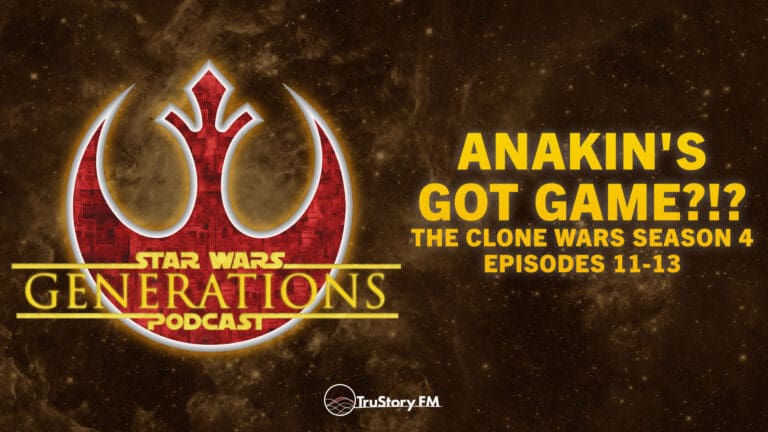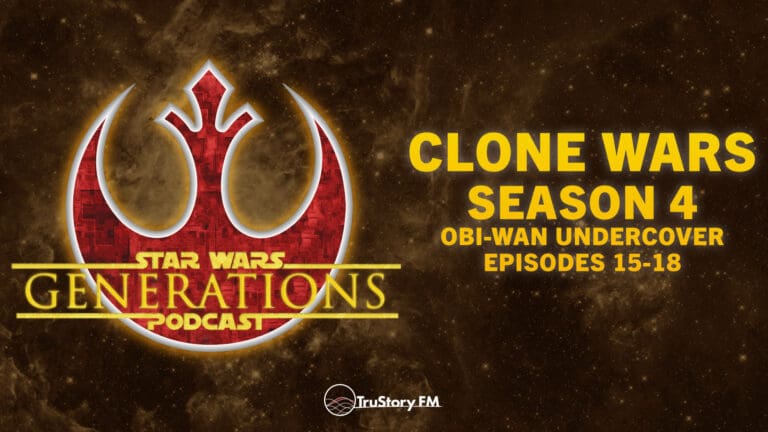Ghorman Massacre, Mon Mothma’s Speech, and Political Parallels
In this gripping episode of Star Wars Generations, hosts Matthew, Alex, Erin, and Aaron dive deep into what many consider the pinnacle of Star Wars television (at least until next week): Andor Season 2 Episodes 7-9. The discussion centers on the shocking Ghorman massacre, Syril and Dedra’s complex relationship, and Mon Mothma’s pivotal speech that formally launches the Rebel Alliance.
The hosts analyze how Episode 8’s Ghorman massacre serves as a chilling parallel to real-world protests and government responses. They point out how the Empire deliberately created conditions for violence by barricading the plaza, strategically opening it, and then using a planted sniper to incite riots—tactics reminiscent of how governments have historically responded to protests in our world. When the protesters chant “The galaxy is watching,” the hosts draw comparisons to the 1968 Democratic National Convention protests in Chicago where demonstrators shouted “The whole world is watching” as police violently responded.
The discussion turns to how the Empire controlled the media narrative, with news reports spinning the massacre as “terrorist violence” rather than a government atrocity—highlighting the parallels between Star Wars and our own media landscape. The hosts examine how Tony Gilroy’s writing makes explicit connections between the Empire’s tactics and contemporary political situations.
Syril and Dedra’s relationship takes a dramatic turn when Syril discovers Dedra’s role in orchestrating the Ghorman massacre. After nearly strangling her in his rage, Syril abandons the Empire to pursue Andor, whom he still blames for the deaths that started his journey. The hosts discuss how Syril’s character arc represents someone who believed in justice through institutional power only to discover the system’s corruption, leading to his violent rejection of Dedra—whom he once idolized.
One of the most significant moments explored is Mon Mothma’s powerful speech denouncing the Empire, which formally launches the Rebel Alliance. The hosts analyze her journey from working within the system to finally breaking away after being gradually isolated and betrayed by those around her. Her speech about the “death of truth” being “the ultimate victory of evil” resonates powerfully with contemporary political discourse, showing how Star Wars continues to reflect real-world struggles against authoritarianism.
Key Topics Discussed:
- How does Episode 7 set up the characters for the dramatic events in Episodes 8-9?
- What real-world protest events did the Ghorman massacre parallel?
- How did Syril’s character evolve from Imperial loyalist to someone who attacks Dedra?
- Why did Bix choose to leave Andor rather than stay with him?
- What made Mon Mothma’s speech so powerful and relevant to today’s political climate?
- How does Andor’s role in helping Mon Mothma escape connect to his ultimate fate in Rogue One?
- What significance does K2SO’s introduction have for the final arc of the series?
The hosts conclude by praising Andor as possibly the best Star Wars media ever produced, while acknowledging that the franchise benefits from having a variety of tones across different shows. With only one more arc left in the series, they express both excitement to see K2SO in the final episodes and disappointment that this groundbreaking show is nearing its conclusion.







